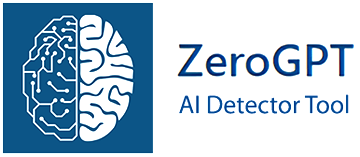Self-Efficacy and Academic Cheating in Nursing Faculty Students
DOI:
https://doi.org/10.34012/jukep.v7i2.5019Keywords:
self efficacy, plagiarism, fraud, student, nursingAbstract
Several studies have found that the types of academic fraud that often occur are cheating, plagiarism, stealing exam materials, and handing over other people's assignments on their behalf. One of the reasons that causes academic cheating to occur is disbelief in one's capabilities which is called self-efficacy. Previous research has shown that low self-efficacy will give up faster and avoid difficulties because they are not sure of their abilities. Cheating behavior in the nursing profession is very bad because it will have a bad effect on patients like medication errors. Therefore, the purpose of this research was to determine the relationship between self-efficacy and academic cheating in nursing students. The research design used descriptive correlational. The sample in this study was nursing students at the University of Western Indonesia with a total of 183 respondents. The sampling technique used simple random sampling because the population was homogenous. Data was collected online by Google Forms. The data were analyzed using the chi-square test. It was found that the majority of self-efficacy was in the moderate category of 123 (67.2%), and academic cheating was in the low category of 165 (90.2%). The Chi-Square test showed a p-value of 0.002. There is a relationship between self-efficacy and academic cheating in nursing students. High self-efficacy will create a calm feeling to face difficult tasks, increase optimism, and reduce anxiety. Recommendations for nursing educational institutions can motivate students and modify learning methods so that students have the confidence not to commit academic fraud.
Downloads
Published
How to Cite
Issue
Section
License
Copyright (c) 2024 Clarita Eka Putri Mendrofa, Dinda Rensi Novalinda, Prista Yuniar, Adventina Hutapea, Peggy Sara Tahulending

This work is licensed under a Creative Commons Attribution 4.0 International License.
Authors who publish their manuscripts through the Journal of Keperawatan Priority agree to the following:
- Copyright to the manuscripts of scientific papers in this Journal is held by the author.
- The author surrenders the rights when first publishing the manuscript of his scientific work and simultaneously the author grants permission / license by referring to the Creative Commons Attribution 4.0 International License to other parties to distribute his scientific work while still giving credit to the author and the Journal of Journal Keperawatan Priority as the first publication medium for the work.
- Matters relating to the non-exclusivity of the distribution of the Journal that publishes the author's scientific work can be agreed separately (for example: requests to place the work in the library of an institution or publish it as a book) with the author as one of the parties to the agreement and with credit to sJournal ofJournal Keperawatan Priority as the first publication medium for the work in question.
- Authors can and are expected to publish their work online (e.g. in a Repository or on their Organization's/Institution's website) before and during the manuscript submission process, as such efforts can increase citation exchange earlier and with a wider scope.


















